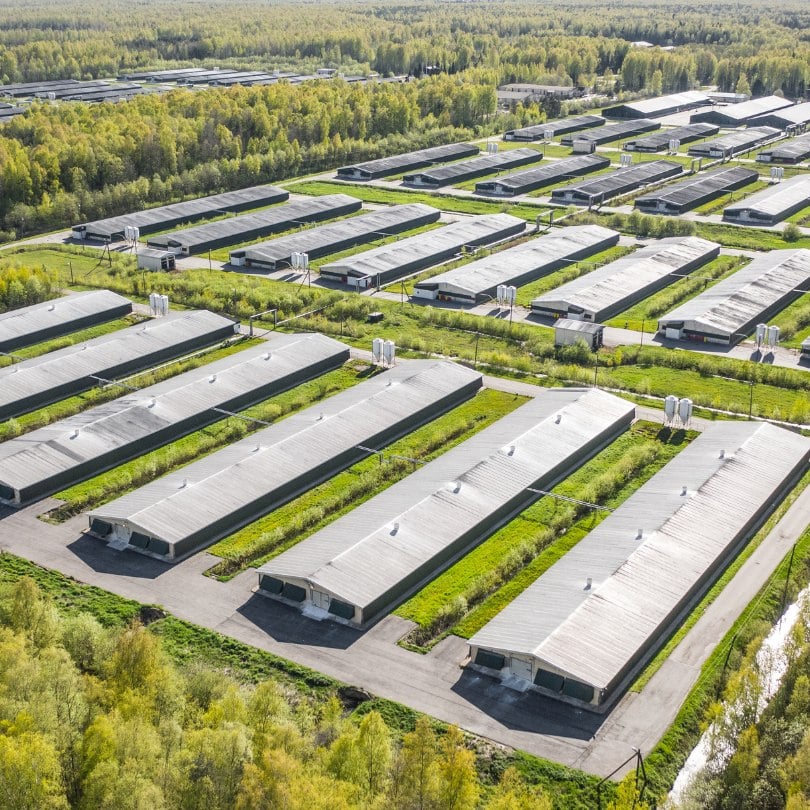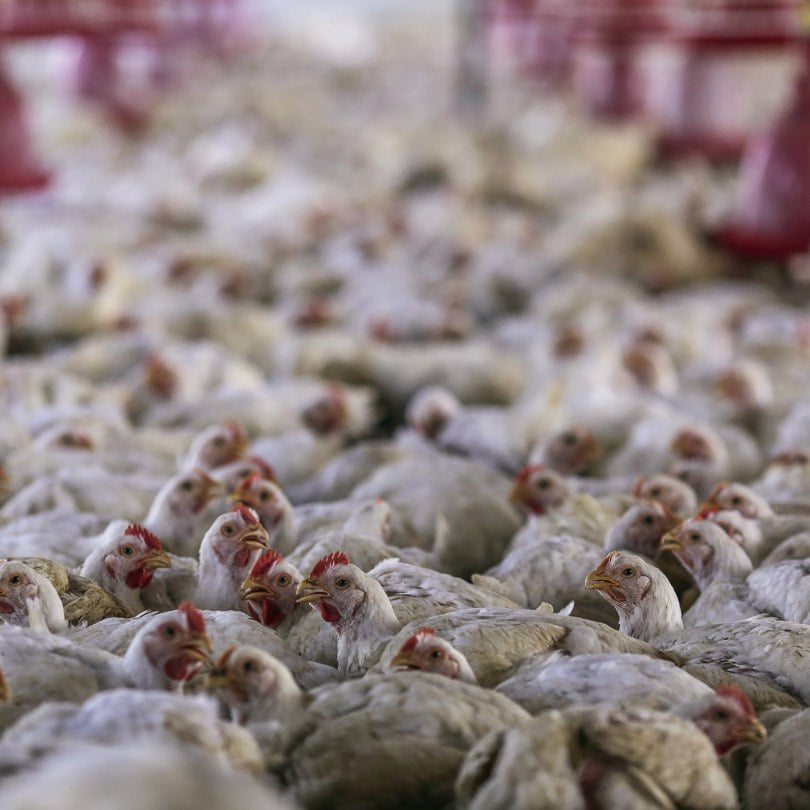Trivia Night at Vineapple
Monday, September 22 · 6:30 - 9:30pm EDT
Kick off NYC Climate Week by testing your knowledge and join World Animal Protection at an exciting trivia night at Vineapple in Brooklyn!

Climate Week NYC is coming September 21-28, 2025! Are you ready to get involved?
Monday, September 22 · 6:30 - 9:30pm EDT
Kick off NYC Climate Week by testing your knowledge and join World Animal Protection at an exciting trivia night at Vineapple in Brooklyn!
From koalas, jaguars and sloths to pigs, cows and chickens, all animals are threatened by one common enemy: factory farming.
The solution? Eat more plant-based foods!
Jaguars, koalas, and even polar bears are victims of the same cruel system as cows, chickens, and pigs–industrial animal agriculture (also called “factory farming”). Factory farms not only cause untold suffering for the animals who are confined and slaughtered, they are also a leading cause of climate change, making the planet less habitable for animals worldwide.
Despite growing momentum to address climate change, industrial animal agriculture continues to be let off the hook. We cannot afford to keep giving factory farming a pass.
You can help by demanding more plant-based foods in grocery stores, restaurants, and cafeterias in your community.


Experts have warned that unless factory farming declines, we cannot achieve the goals of the Paris Climate Agreement and keep below the 1.5°C increase maximum.
The climate impacts from the world’s five largest factory farming companies are responsible for emissions equivalent to 36.4 million cars on the road annually.
Animals like Xama the jaguar and Cecilia the anteater are losing their homes and families to feed factory farms.
In Brazil’s pristine ecosystems, fires are deliberately set, destroying precious habitats and the animals that once thrived there. Similarly, in the wilds of Queensland, Australia, trees that provide homes for koalas and other animals are bulldozed.
This destruction is driven by meat companies seeking more space and releases significant amounts of carbon into the atmosphere.

Since 2022, bird flu has killed over 165 million U.S. wild and farmed birds and continues to devastate wildlife, infecting species across continents—including Antarctic penguins, a Florida dolphin, and an Alaskan polar bear. As the virus spreads from poultry and wild birds to mammals, the number of human cases has risen to 67, with one reported death.
As governments struggle with the economic toll, vital animal protection laws are at risk—yet factory farming itself is driving this crisis. The World Health Organization warns that bird flu poses a serious global pandemic threat.
Climate change is negatively affecting the quantity and quality of freshwater resources that humans and animals rely on, and factory farming is one of the largest consumers and polluters of freshwater in the US. The Midwest cow industry is the primary cause of depleting levels of the Colorado River, a water resource that hundreds of species rely on to thrive.
Factory farming’s reliance on massive amounts of corn and soy comes with a toxic price. Each year nearly 250 million pounds of insecticides and herbicides are applied in the US just to the corn and soy grown for animal feed! These toxic chemicals poison aquatic species and the animals that consume them. Chemical fertilizers cause oxygen-depleted dead zones in the Gulf of Mexico, where few or no lifeforms can survive.

Reducing and/or eliminating meat consumption is urgently needed to protect animals, halt and reverse the climate crisis, and build a more sustainable and kind food system.
Protect animals and save our planet.
Plant-Powered Changemakers is a community of passionate individuals dedicated to creating a more compassionate and sustainable world through the power of plant-based foods. By making small changes in our own lives, we can have a ripple effect of positive change on the planet, on animals, and on our own communities.
The Peas, Legumes, and Nuts Today (PLANT) Act of 2023 is a groundbreaking piece of legislation aimed at bolstering farmers growing food crops in the United States. It would increase support for plant-based crop cultivation, a critical need if we are to shift away from factory farming.
Our recent Moving the Menu report revealed that our nation’s top restaurants are not doing nearly enough. Chain restaurants are one of the US's largest sources of meat consumption. If these companies recognize the critical importance of meat reduction and integrate plant-based options into their menus, they could help alleviate immense suffering for humans and non-human animals alike.
Companies committed to social responsibility in their supply chains must set timebound targets for reducing meat procurement. Achieving reductions in meat purchasing will better enable companies to meet emissions reduction, biodiversity protection, and other sustainability targets.
Including plant-based foods on retail shelves and restaurant menus is a positive step, but transformational change requires food companies to actively promote these foods and their benefits to their customers through in-store and online deals, features, and offers.
City officials can take a stand against climate change by endorsing the Plant Based Treaty. This initiative empowers local governments to lead the way in addressing the environmental destruction caused by animal agriculture, creating bottom-up pressure for national and global leaders to take action.
City officials can leverage their authority over public food purchasing in schools, hospitals, and government operations, following examples like Berkeley’s 50% animal product reduction commitment. They can also integrate plant-forward goals into city planning, run public awareness campaigns, and provide financial incentives, all of which help reduce greenhouse gas emissions, protect public health, and prevent future pandemics.